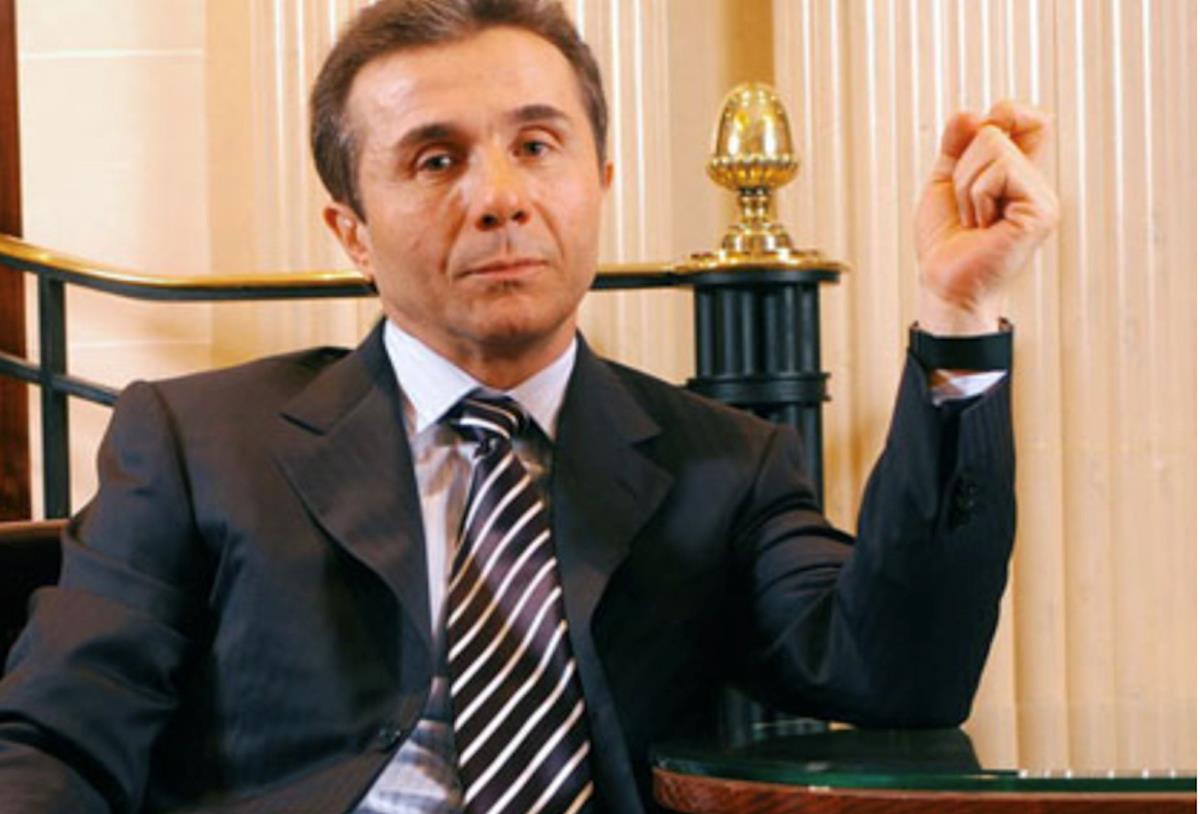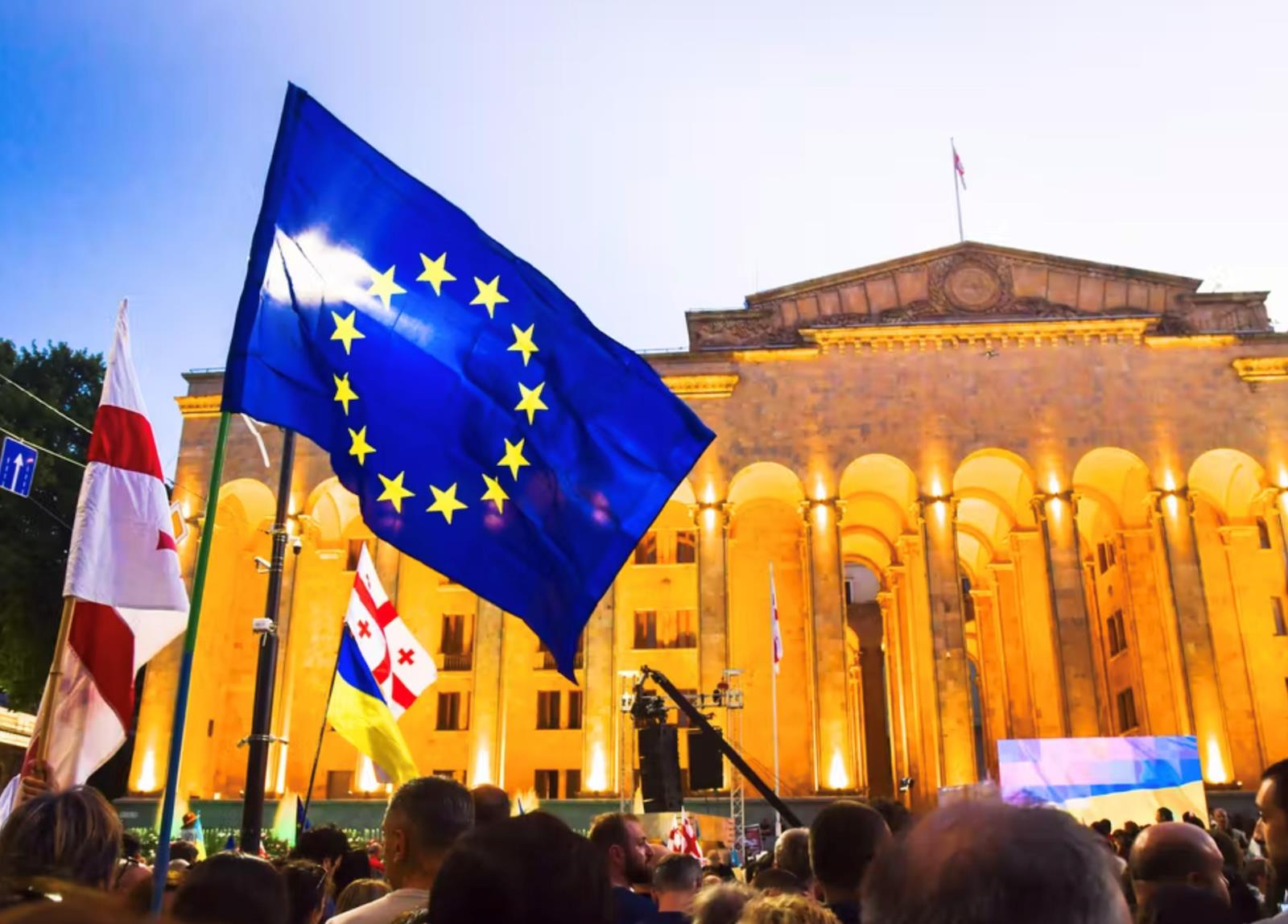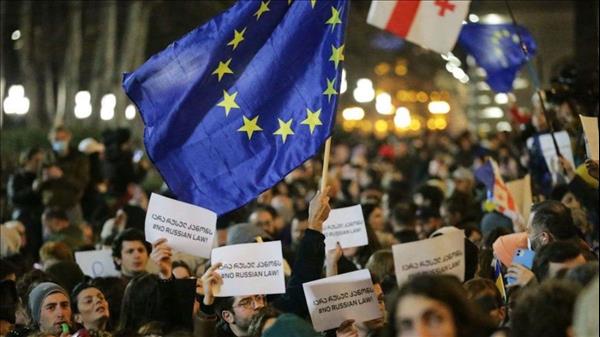(MENAFN- Asia Times) The Georgian government has been forced to withdraw its controversial“foreign agent” law after days of mass protests against what many saw as Russian-inspired legislation which would limit press freedom, making its chances of ever joining the European Union near impossible.
Over two nights this week, thousands of protesters have packed the streets of tbilisi demanding“No to Russian law.” Riot police used teargas and water cannons. More than 60 people were detained.
But the scale of protests led the ruling Georgian Dream party to back down, saying in a statement it would“unconditionally withdraw the bill we supported without any reservations.”
The bill, which had only recently been introduced by the Georgian government, would prevent non-government groups and the media from taking more than 20% of funding from abroad. It is similar to a law passed in russia in 2022 which has been used to crack down on media freedom.
Georgia was once the darling of the international community – a shining example of how a post-Soviet country could overcome a legacy of corruption and authoritarianism, and come back from the brink of state failure.
But Georgia's relationship with the west started to change after billionaire businessman, Bidzina Ivanishvili – georgia's richest man – came to power in 2012 (and holds de facto power as the leader of the Georgian Dream party, despite officially stepping down in 2013). Initially, Ivanishvili appeared to be trying to build good relations with the West.
But he did so while also maintaining close relations with Moscow on the grounds that this was critical to georgia's security .

Bidzina Ivanishvili is seen as Moscow's man in Tbilisi. Image: Wikipedia
Experts I interviewed, during a visit to Georgia in late 2022, claimed that Ivanishvili has no intention of ceding power. Thus, remaining friendly with Russia serves this objective better than trying to please the west – which has always come with strings attached such as adhering to human rights and ensuring the integrity of elections.
Ivanishvili may also be compromised by the Kremlin. He was reported to have sold all his russian assets in 2012 but last year Transparency International reported he still owns businesses in russia through a network of off-shore companies as well as through his family and other representatives.
The tycoon is thought to owe russia for his surprise election victory in 2012, a victory made all the remarkable by his refusal to criticize Russia, which had invaded Georgia just four years previously.
The obviously pro-moscow leaning of Ivanishvili and his Georgia Dream Party has been a source of growing discontent among ordinary Georgians. Many Georgians feel their government has little interest in protecting the country from Russia's political and psychological aggression, and possibly not even military aggression.
There is also widespread concern among Georgians about what they perceive as the government's lack of commitment to true democracy. A report from the Organization for Security and Cooperation in Europe said that while elections had been assessed as competitive and fair,“pervasive allegations of pressure on voters and blurring of the line between the ruling party and the state reduced public confidence in some aspects of the process.”
Journalists and the NGO directors I interviewed claimed that they were constantly being spied on by the regime. Regardless of whether Ivanishvili is a Russian puppet or merely shares the Kremlin's political vision, Russia has gained more leverage over Georgia under his control.
Public backlash
But the protests show the extent to which the government's clear pro-Russian leanings have outraged much of the Georgian population.
With Russian troops only 25 miles away from the capital, Tbilisi, many fear that Georgia could share the same fate as Ukraine – especially if it looks as if a government of a different stripe could continue to move the country closer to the west by joining the EU and continuing as a candidate member of NATO.
The appetite for such a shift is clear – a survey conducted in august 2022 found that at least 75% of Georgians want to join the EU, and only 2% are pro-Russian.
And anti-Russian sentiment has only increased with the influx of Russians fleeing Georgia since the invasion of Ukraine. There was even an online petition calling for Russians to be allowed to stay in Georgia for only three months.
Historically Georgians have shown they are willing to take to the streets to protest what they see as injustice: whether to protect the rights of the gay and lesbian community , to reject what they see as electoral fraud , or to demonstrate against police brutality and corruption .
The protests leading to the“rose revolution” in 2003 brought an end to the country's Soviet-era leadership and led to a break from Moscow. And the country's political leadership also has a track record of making concessions in response to citizens taking to the streets.

A pro-EU protest in Tbilisi, Georgia, in June 2022. Photo: Evaldas Mikoliunas / Alamy
This could be seen in 2019 after months of protests forced the Georgian Dream-led government to promise electoral reform .
But Moscow's man still holds the reins of power in Tbilisi and his government's attempt to pass the“foreign agent” law is further evidence that Russia will continue to influence and inspire some of the countries it considers to be in its orbit.
The failure to pass the reform, however, suggests there is a limit to Moscow's power in Georgia. Much may now hang on the outcome of Vladimir Putin's war on Ukraine.
natasha lindstaedt is Professor, Department of Government, university of essex
This article is republished from the conversation under a Creative Commons license. Read the original article .





















Comments
No comment